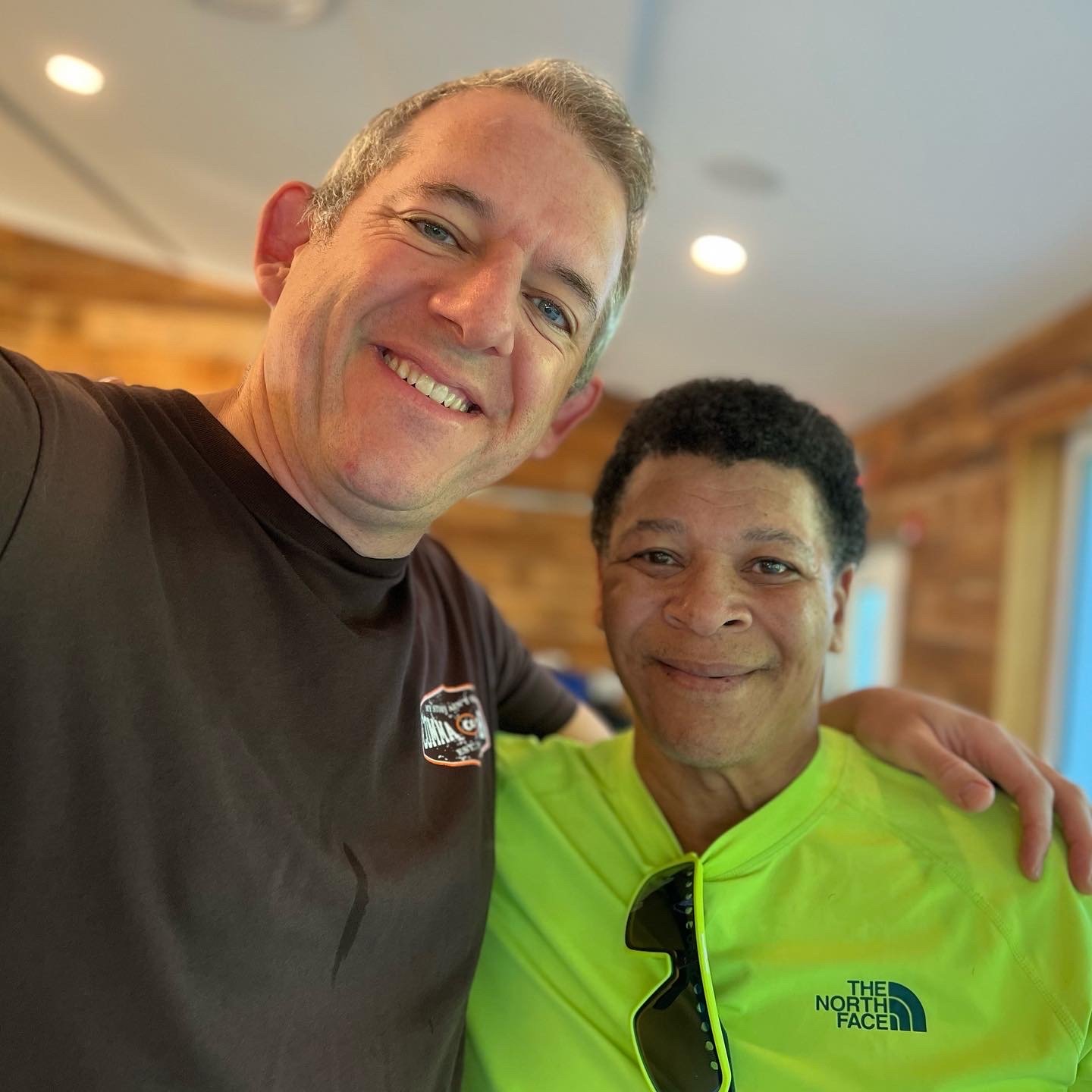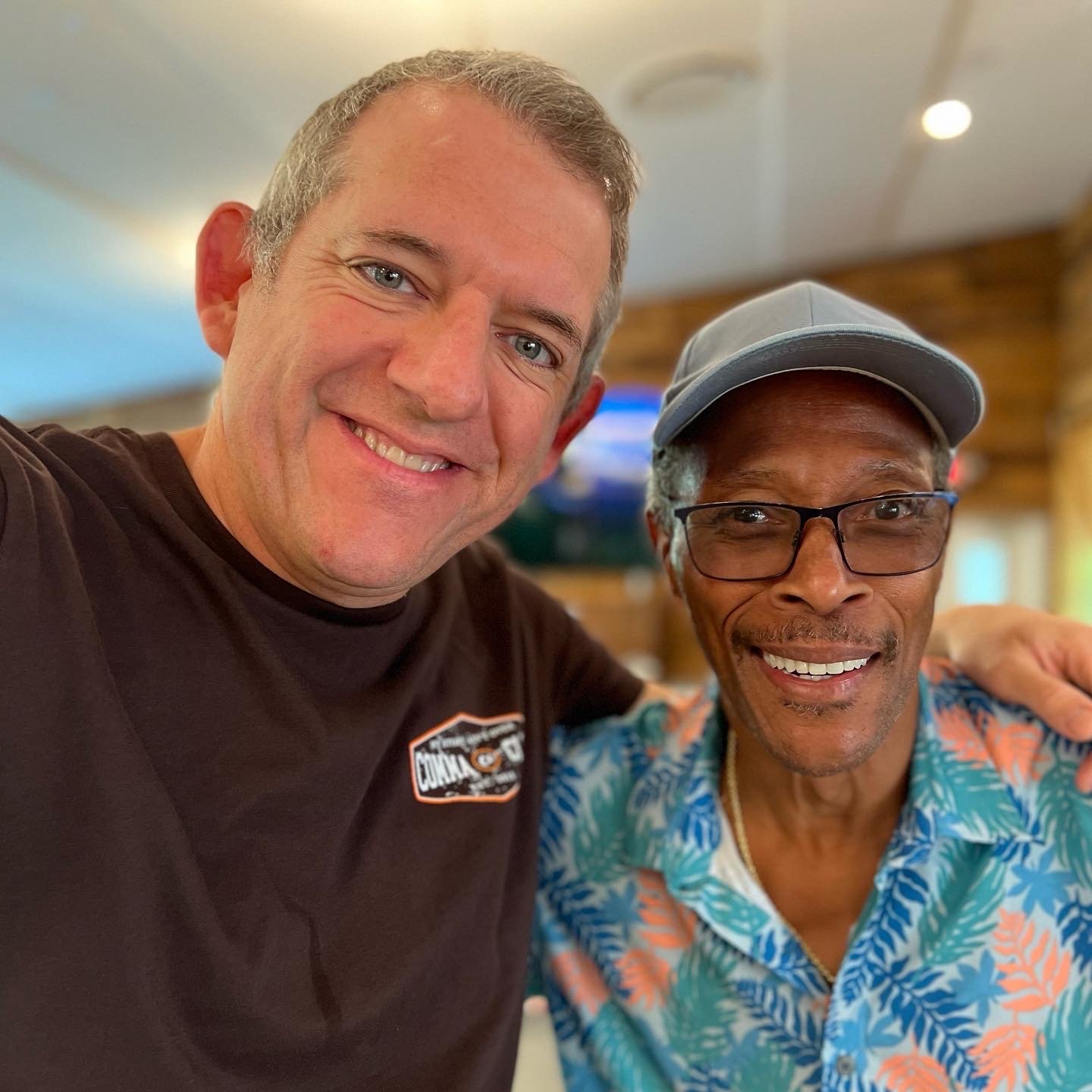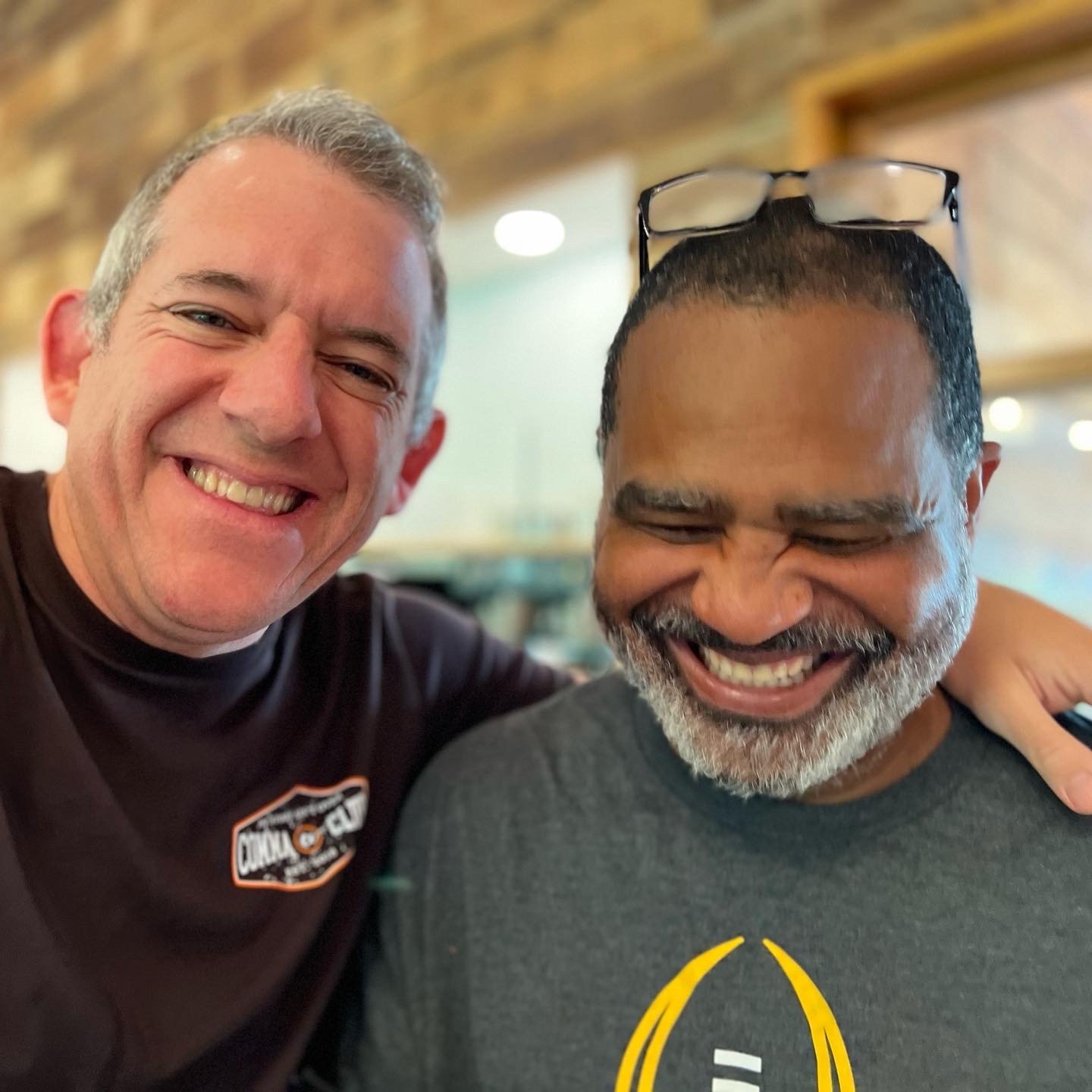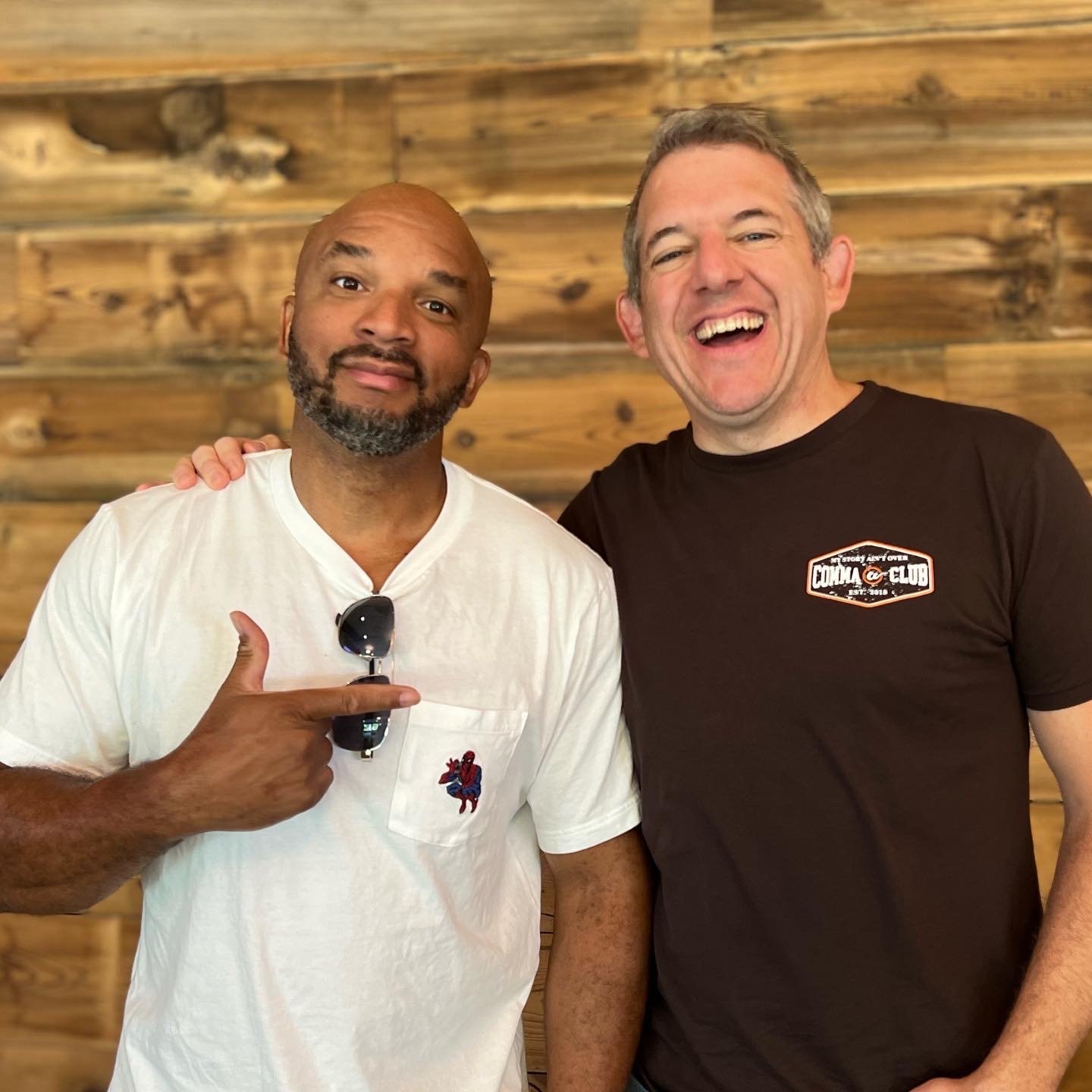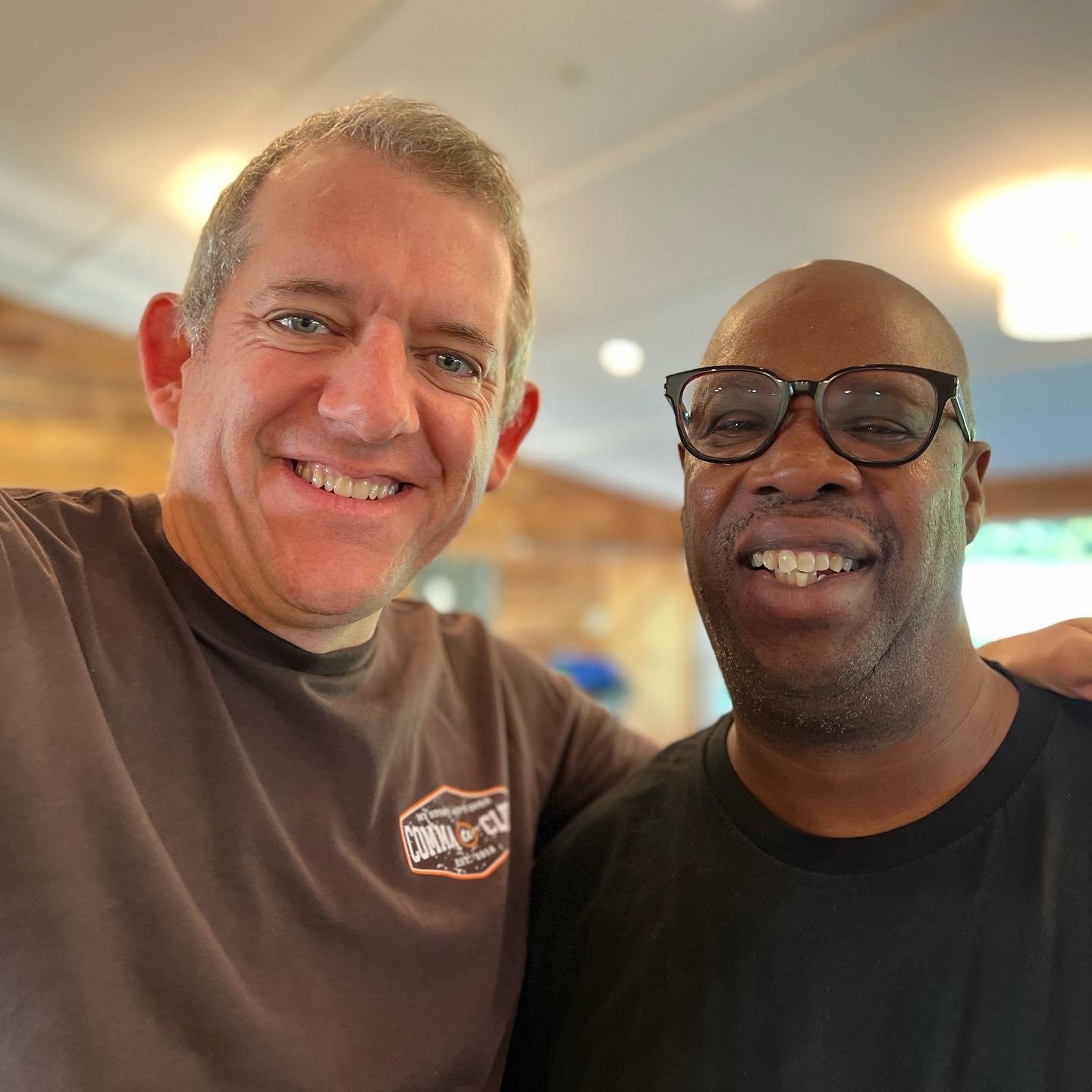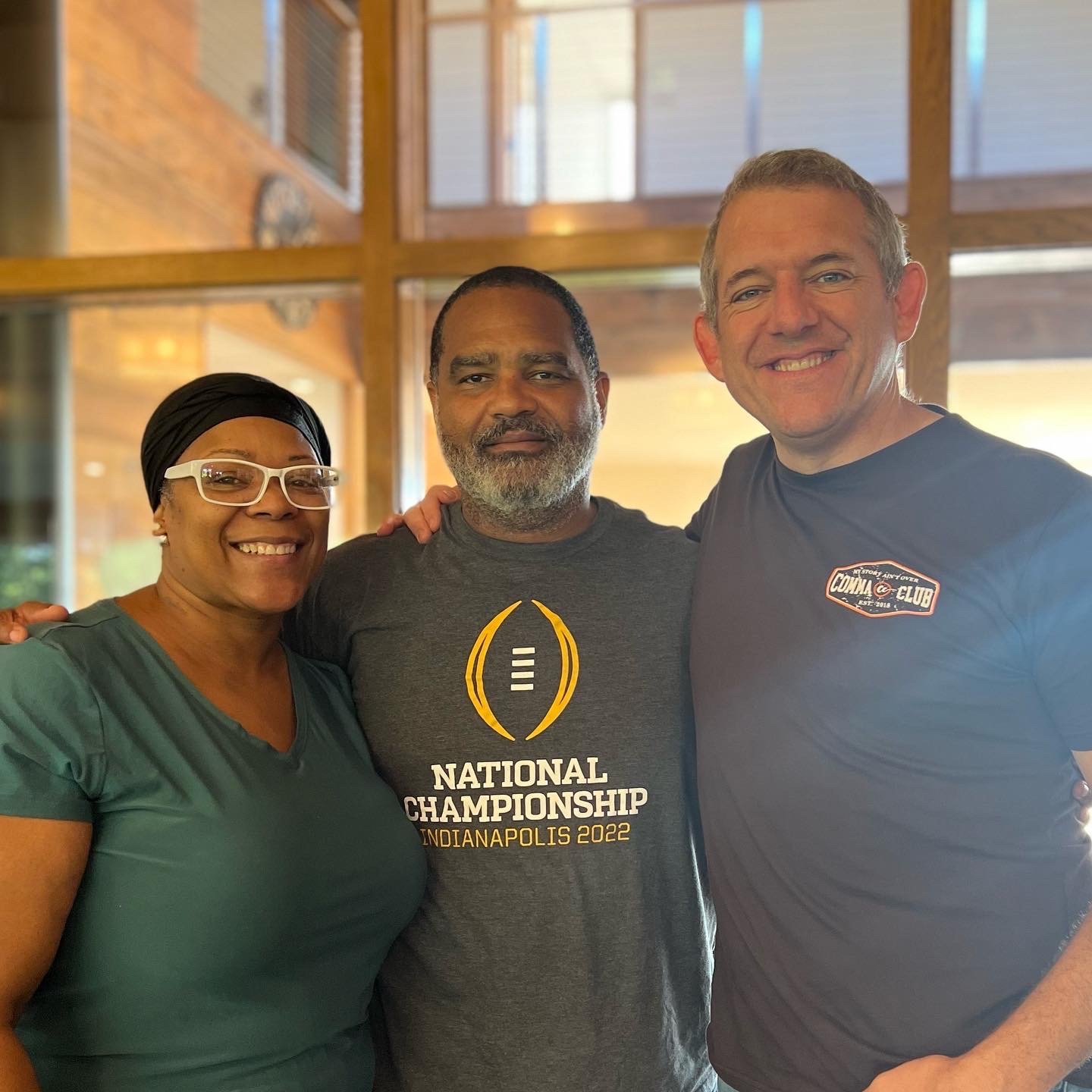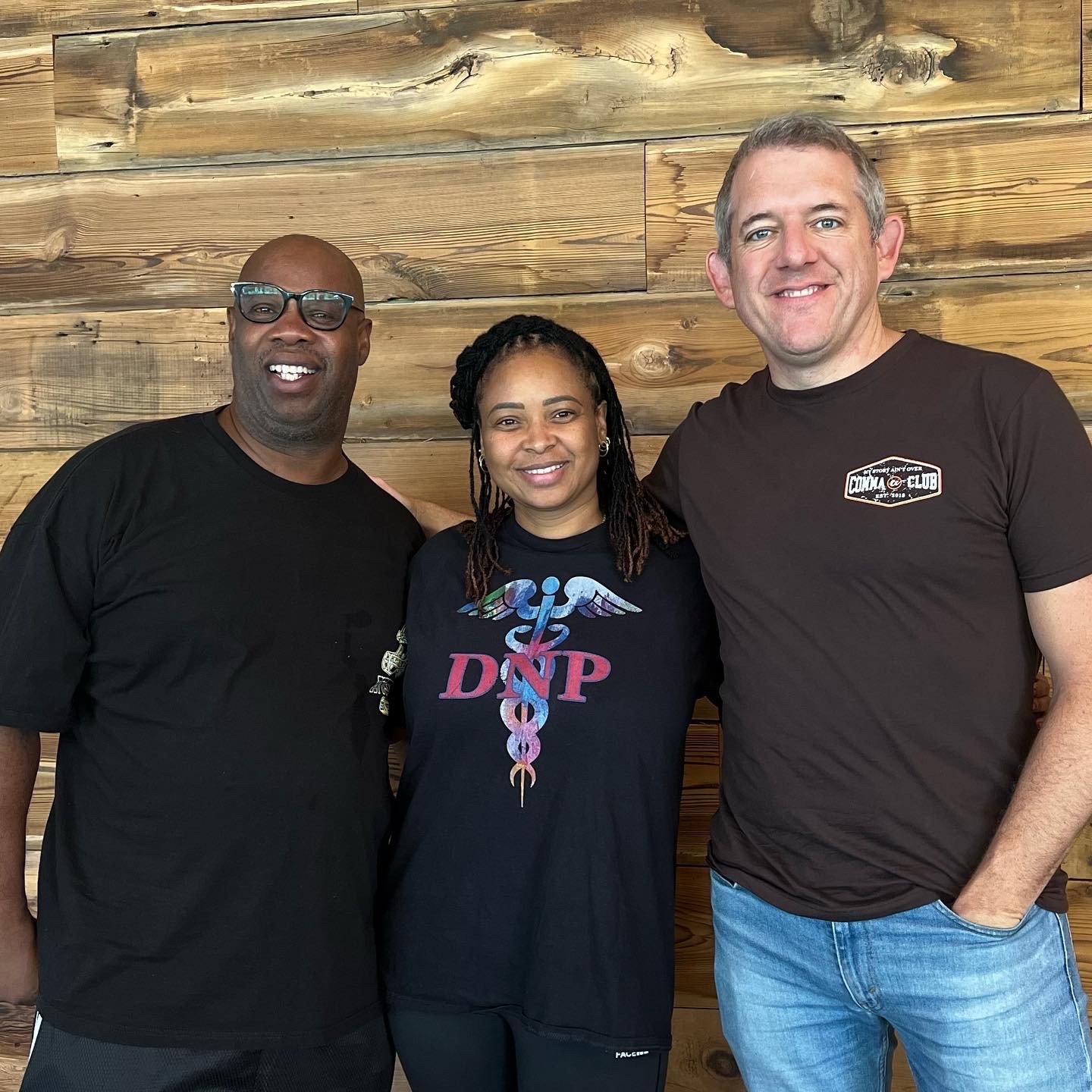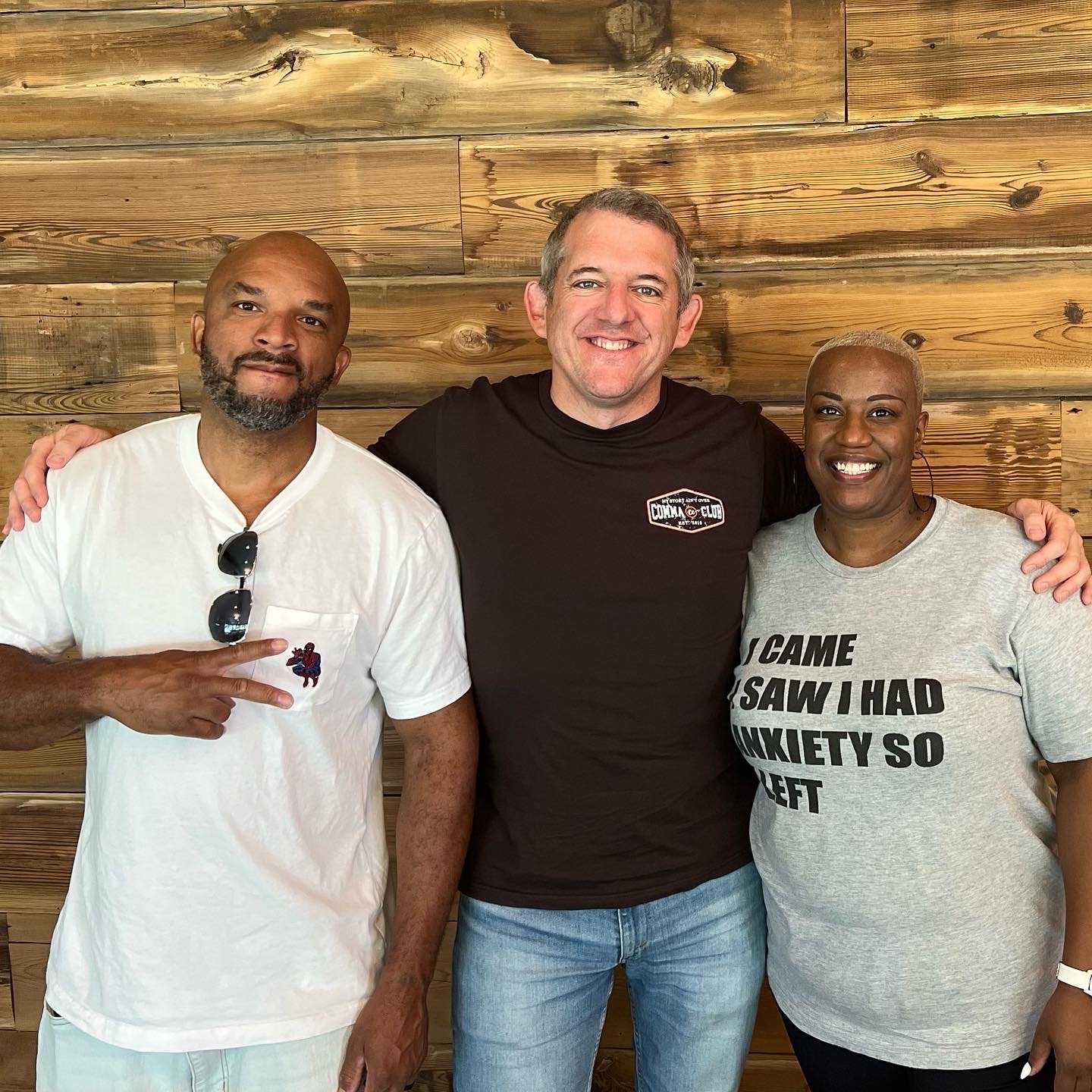TRIGGER WARNING – UNSAFE THINGS WILL BE READ HERE
I’m compelled towards the edge.
It’s what so many of the spaces we facilitate feel like – whether it be in San Quentin, in a cancer patient’s room, the deathbed of one of our community members, in a grief workshop, or at one of our open mics – it all feels like “THE EDGE.”
THE EDGE:
Where the truth can no longer be denied.
Where the weight of what we’ve held alone can finally be held in community.
Where the heart of the matter is revealed by spontaneously peeling off all the surface bull shit, or by taking off the shield we’ve necessarily built to protect it.
Where so much of what feels inherently risky,
must finally be vulnerably said or felt out loud,
with raw and real honesty, together, in community.
And as much as we might want it to be safe there, “the edge” will often actually feel, and sometimes BE, “unsafe."
In fact, a few weeks ago, in the middle of a You’re Going to Die open mic, a very tall man, dressed all in black, topped with a black cowboy hat, notably drunk, started aggressively engaging with people at our event, one by one at first, and then collectively.
He threatened and then he attacked, verbally at first, and then physically, using his body as a weapon against some of our own. He berated people as they walked offstage, people I love, insulting them for what or how they shared. He threatened to take the stage, declaring the intent to offend everyone in the audience with his open mic time. Just before intermission, he started harassing me to give him his time onstage. After his second demand to take the stage, when I asked him to sit down, and then leave, after he called me a “motherf****r” for not giving him the mic, after he physically engaged with one of my dear friends and YG2D organizers, someone who was actively trying to hold ground and protect the space, we had to stop the entire show and escort him out.
Two days after children were murdered in the Uvalde shooting,
we were collectively scared,
we were threatened,
we were unsafe.
After the man was outside, yelling audibly from the street, I asked everyone to stop and wait, in what shared quiet we could create. No one performed. I told them as much info about what had happened as I could, as honestly as I could, with acknowledgement for the man and his possible mental illness, or drug abuse, or trauma, or all of it, that brought him to us in this way. And we sat quietly together, in silence.
And then, when it felt like there was enough room, someone sang a song. It was a song they’d planned to sing that night, one that just so happened to be about their personal experience with alcoholism and its abusive presence in their life. She played it skillfully, casting it like a spell, gently blanketing us all…
…while in the background the man screamed in the street…
but he got quieter and quieter as the song played on,
until, by the time the song ended, he was gone.
And then, while we still may have felt unsafe, we were together. In the brokenness, we were bound. In fact, I think we were together and more connected after this shared heartbreak than we were before it happened. We were left in love, care, and connectedness with one another.
We were left with kindness.
Like Megan Devine puts it, in her book IT’S OKAY THAT YOU’RE NOT OKAY: “But for all you’ve lived, for all you’ve had to […] you deserve kindness. You deserve the utmost care and respect. You deserve love and attention.”
I know that an end to what is horrifically wrong in the world is going to take a lot more than kindness…
AND I absolutely believe a stronger community culture of caring is how we deal with what’s broken. The kind of kindness that offers the spaces and places for the what’s needed - the right kind of attention, resources, medicine, healing, listening, acknowledgment - for what hurts and what’s breaking or broken. Maybe even a place, before it’s too late, to catch someone who’s enraged, traumatized, angry, grief-stricken, terrified for what being alive has done to them.
The kindness of a space where the hardest part of being mortal can be held in community.
I can't stop reading this poem by Naomi Shihab Nye, over and over again, in our grief workshops, at our open mic events, alone to myself... It reminds me that the meaning of life is each other.
We’re all going to die. Be together. Be kind.
KINDNESS
Before you know what kindness really is
you must lose things,
feel the future dissolve in a moment
like salt in a weakened broth.
What you held in your hand,
what you counted and carefully saved,
all this must go so you know
how desolate the landscape can be
between the regions of kindness.
How you ride and ride
thinking the bus will never stop,
the passengers eating maize and chicken
will stare out the window forever.
Before you learn the tender gravity of kindness
you must travel where the Indian in a white poncho
lies dead by the side of the road.
You must see how this could be you,
how he too was someone
who journeyed through the night with plans
and the simple breath that kept him alive.
Before you know kindness as the deepest thing inside,
you must know sorrow as the other deepest thing.
You must wake up with sorrow.
You must speak to it till your voice
catches the thread of all sorrows
and you see the size of the cloth.
Then it is only kindness that makes sense anymore,
only kindness that ties your shoes
and sends you out into the day to gaze at bread,
only kindness that raises its head
from the crowd of the world to say
It is I you have been looking for,
and then goes with you everywhere
like a shadow or a friend.



